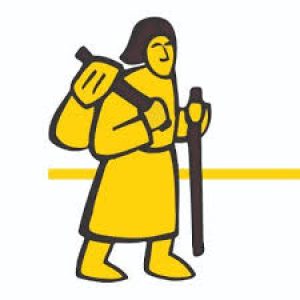As the Via Francigena prepares to become a part of the Unesco heritage tentative list it receives a new-found strength in Monteriggioni, where on Saturday 27th January the fifth edition of the ‘Comuni in Cammino‘ forum took place in the theme of “Europe and the Via Francigena: an intercultural dialogue”.
In the ‘Complesso Monumentale’ of Abbadia Isola, the representatives of the four countries crossed by the Francigena (European institutional authorities and international organisations) came together to discuss the progress of the ancient pilgrim route and to strengthen their synergy in common projects. Among which is ‘Primis’, the addition of the Italian tract of the Via Francigena to the Unesco heritage list after the seven crossed regions signed the agreement in March 2017, as well as the launch of the preliminary analysis coordinated by the European Association of the Vie Francigene.
The meeting began with national anthems and international greetings from the municipality of Monteriggioni, Regione Toscana and the European Association of the Vie Francigene, introduced with a video message from Gabriella Battaini Dragon, general vice-secretary of the council of Europe. The mayor, Raffaella Senesi, together with the vice-president and assessor of tourism of Regione Toscana, respectively Monica Barni and Stefano Ciuoffo, underlined the culture of hospitality and the dialogue which characterises the Via Francigena. A theme reaffirmed by the president of the European Association of the Vie Francigene, Massimo Tedeschi, a theme which has become more prominent with the Forum, the ‘Giornata della Memoria’ and the ‘Ode to Joy’, the current European Union anthem.
The progress of the Via Francigena Unesco candidacy project was the main feature of Paolo Fontani’s speech, director of the Unesco office in Brussels and Unesco representative for European institutions, who reminded the present of the work of the regions for this objective, highlighting the strengths of Sigeric’s route. It is a European project which unites diversities as reaffirmed by Silvia Costa, member of the European council, who reiterated the importance of routes in 2018, European year of cultural heritage.
The Forum continued with a virtual journey along the Via Francigena to Puglia, with the representatives of small “great” municipalities who compared their experiences; before leaving time for a session dedicated to the promotion of routes tourism and the main cultural events linked to the Francigena, coordinated by Sandro Polci, director of the European Festival of the Vie Francigene.
The historical routes, as an experience of cultural dialogue, were the main theme of the video message sent by Pierluigi Sacco, IULM (Libera Università di Lingue e Comunicazione) followed by the presentation of the second edition of the literary award dedicated to the Via Francigena, “sulle orme dei pellegrini” (in the Footsteps of Pilgrims). The event, promoted by the municipality of Monteriggioni and Betti Editrice, unites the theme of slow travel with self-discovery, as well as the region’s of Italy in 2018, the year of Italian food. In the morning the new edition of the European Association of the Vie Francigena official magazine ‘Via Francigena and the European Cultural Routes’ was presented, with the cover and headline dedicated to Monteriggioni.
The afternoon saw the presentation of the activities of Radio Francigena, with a comparison among the representatives of the Francigena regions (Valle d’Aosta, Piedmont, Lombardy, Liguria, Emilia Romagna, Tuscany and Lazio) regarding security, signage, maintenance, hospitality and communication. Paolo Piacentini, MiBACT expert, reminded the present of national policies and pilgrimage promotion.
The V edition of the Forum also involved the Rotta dei Fenici, the Via Romea Germanica, the Centro Italiano di Studi Compostellani and the archdioses of Perugia-città della Pieve, in order to launch an intercultural dialogue and a network of routes which places pilgrims and their experiences on in the road in the foreground. The municipality of Monteriggioni also awarded the first ‘Sigeric Award‘ during the Forum; it was given to three people who were distinctly active in the promotion of the Via Francigena: Silvia Costa, member of the European Council; Massimo Tedeschi, president of the European Association of the Vie Francigene; and Paolo Bongini, ex-director of Regione Toscana.
The last part of the Forum looked to the future of the Via Francigena with the presentation of the new official app of the European Association of the Vie Francigene of the Italian and Swiss tracts. The Forum ended with a speech by Sandro Santini, president of the ATVF, Tuscan Association of the Vie Francigene, on good practice and future projects. The entire Forum was followed by Radio Francigena, with over thousand listeners in Europe and even in Japan.



